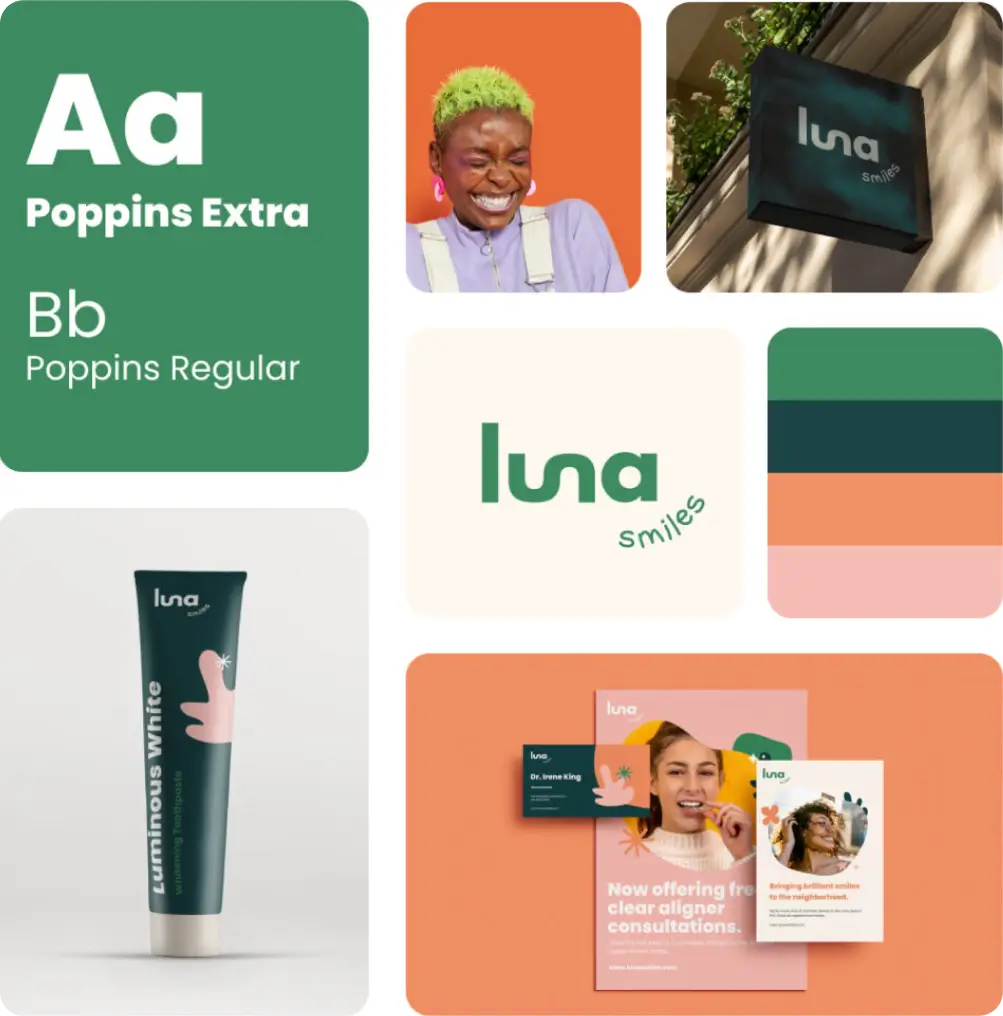
A Simple Strategy for Better Treatment Plan Presentations
Take a moment and think about the last time you made a big purchase– maybe buying a car. You probably didn’t buy it the first
Review and Reputation
How to Get Dental Reviews (Without Feeling Like You’re Begging)
Knowing how to get dental reviews is a critical skill for successful practices. Online reviews are more than a digital pat on the back. They’re the modern word-of-mouth that drives patient decisions.
Whether someone’s searching for a new dentist on Google, browsing local options on Yelp, or checking out your social proof on Facebook, reviews are often the first impression a potential patient has of your practice. In fact, 94% of healthcare patients use online reviews to evaluate providers, and nearly half of patients are willing to go out-of-network for a provider with great reviews.
As you can see, building your online reputation through patient reviews can pay dividends. So, how can you get more patients to leave great reviews without feeling like you’re badgering them?
You know you’re doing great work. Patients are smiling on their way out the door. But when you check your online reviews? Crickets.
This isn’t just your practice—it’s normal. Research shows that while nearly 70% of consumers say they’re willing to leave a review, only about 5–10% actually do without being prompted. For dental and medical practices, that number can be even lower, especially because many patients feel like healthcare is too “private” to review.
And here’s the kicker: people are far more likely to read reviews than leave them. According to BrightLocal’s 2024 Local Consumer Review Survey:
of consumers at least sometimes read online reviews to make decisions about local businesses, including healthcare providers.
of people say they always leave a review. But that number is increasing every year!
of people look at two or more review sites before making a decision about a business or healthcare provider.
According to a recent article from the ADA, about 88% of people trust online reviews as much as a personal recommendation, meaning your online reviews are slowly taking the place of word-of-mouth referrals that were once the most reliable way to get new patients.
So, most people read and trust reviews, but not many write them unless they’re specifically asked to do so. Simply asking can dramatically improve the number of reviews for your practice. However, many dentists hesitate to request patient reviews. Their big concern? Bad reviews.
Many dentists hesitate to ask for reviews. What if it backfires? What if asking reminds someone of a minor complaint and they end up venting online?
Here’s the good news: research consistently shows that positive experiences are actually more likely to generate reviews when patients are asked. The idea that only angry people leave reviews is more myth than reality.
In fact, only 1% of patients leave very negative feedback on review sites, and only about 10% leave somewhat negative reviews. That means that 89% of your reviews will, statistically, be positive! The more reviews you have, the less of an impact the occasional bad review will make.
(Plus, responding effectively and gracefully to bad reviews can actually improve perception of your practice even more. Not sure how to respond to bad reviews without sounding defensive? Our team can help with that!)
Unhappy people don’t necessarily leave more reviews, but they may be more likely to leave them unprompted. Happy patients usually just need a reminder. Instead of worrying about bad reviews, focus on giving satisfied patients a clear, easy way to share. Their voices are your best defense against the occasional criticism.
The Catch-22 is that, if you do your job right as a dentist, your patients’ visits won’t be a huge disruption to their day. They’ll come in, have their needs addressed, and go about their normal routine. Which means they’re less likely to keep thinking about it later in the day… and less likely to remember to leave a review.
It can be tough to figure out how to get dental reviews from happy patients without feeling like you’re hassling them. To do it right, it can be helpful to understand the most common reasons satisfied patients don’t leave reviews.
Human behavior is driven by emotion, habit, and, let’s be honest, convenience. A patient may have had a fantastic visit, but once they get in the car, their mind shifts to work, dinner, errands, or kids. The good intention to “leave a review later” often never happens.
This is what behavioral scientists call the intention-action gap—when people want to do something but don’t follow through.
Let’s break down the common reasons patients don’t leave reviews:
This doesn’t mean patients don’t care. It means you have to lower the barrier and offer gentle nudges.

Let’s talk about practical, psychology-informed tactics to help you collect reviews without coming across as needy or annoying.
Sounds obvious, but many practices skip this step. People are far more likely to leave reviews when asked, and especially when asked in person. While many practices leave the onus on their concierge to ask for reviews at checkout, you might want to consider having clinicians ask as well. A request for reviews feels very different coming from your favorite hygienist than the person asking you for money.
As we saw earlier, many patients don’t leave reviews because they just don’t see their experience as relevant or important enough to share. Patients are more likely to leave a review when they understand the impact.
For example, you could say something like:
“You were really nervous about getting this treatment, and we’re so happy we could help you feel comfortable. Leaving a review is a great way to help other patients with dental anxiety. Even just a few words make a difference!”
Appealing to a sense of community and helping others triggers intrinsic motivation.
You’re asking for a favor, so make it frictionless.
The fewer clicks and steps, the better.
Acknowledging your patients’ time and effort goes a long way. A simple thank-you note (even automated) that says:
“We really appreciate you taking the time to leave a review. Thanks for being part of our dental family!”
…can turn a patient into a loyal advocate.
Timing matters. The best time to ask for a review is within 24 hours of the visit. Any longer, and the patient has likely moved on mentally.
Pro tip: Send your automated review text or email about 1–2 hours after their appointment. That’s usually when the anesthesia has worn off and the experience is still fresh.
Each review site has different rules:
Remember that HIPAA applies to online reviews! Even if a patient identifies themselves on a review site, your practice cannot share any identifiable information about them. There may be additional rules or regulations in your state about how to manage dental reviews, so be sure to check with your local regulatory body.
You don’t need to be everywhere—just where your potential patients are looking. Typically:
Pro tip: Start by focusing on Google reviews, then expand.

Let’s be honest. Asking for reviews can feel awkward. You might worry that it’s pushy. Or that patients will think you’re fishing for praise. Or that you’ll accidentally open the door to criticism.
But here’s the truth:
One sure-fire way to make it more comfortable to request a review is to keep it focused on them and not you. Instead of framing it as something they can do that will benefit your business, illustrate the good it will do in other people’s lives. At the end of the day, it’s always about helping more patients experience the same excellent care they enjoy with your team.
Of course, there will occasionally be times when asking for a review isn’t appropriate. As a dentist, you’re probably all too aware of how often you become a shoulder to cry on when patients are struggling. Sometimes when it has nothing to do with their teeth!
Your team should always feel empowered to tailor their approach to the patient and the day they’re having. If a patient is coming in for their first follow-up after a positive biopsy, that might not be the best time to ask. On the other hand, if that same patient is expressing their gratitude for your help rebuilding their smile after struggling with radiation caries, they may be more than happy to share that experience!
The important thing is to find a way to feel comfortable asking for reviews so you can stand out in a competitive digital marketplace and get more people in your community the care they need. It’s worth setting aside a few minutes to train your front desk, hygienists, and assistants to feel confident in making the ask. It gets easier with practice.
Imagine this: 3 months from now, your Google profile is packed with glowing 5-star reviews, full of real patient stories. Your website traffic increases. New patients tell you they chose you “because of your reviews.”
It’s possible. Without being pushy, and without spending a fortune.
Your 3-Step Plan for How to Get Dental Reviews:
Still not feeling confident about improving your online patient reviews? That’s where Patientli comes in. We provide comprehensive support for all aspects of your digital presence, including helping you get more reviews, responding to each new review, and managing those occasional bad reviews with grace. Of course, patient reviews are just one piece of the puzzle. They’re an initial touchpoint for patients who are meeting your practice online for the first time, which should lead them to want to learn more about you, your practice, and your team. Your website needs to take over from there with a welcoming vibe and compelling message. Fortunately, we’ve got you covered there, too!


Take a moment and think about the last time you made a big purchase– maybe buying a car. You probably didn’t buy it the first

Many dental practices set goals like “30 new patients per month” without a clear understanding of where that number comes from, whether it aligns with
Patientli in the News: Thought Leadership Across the Industry At Patientli, we believe in sharing what we know to help dental practices thrive. Our team